- Home
- Neil Gaiman
Stories: All-New Tales ngss-1 Page 3
Stories: All-New Tales ngss-1 Read online
Page 3
By the time the brothers were eighteen, Eddie was a senior bound for college, president of his class and captain of the football team and in the school yearbook “most likely to succeed” and Edward was trailing behind by a year, with poor grades. He’d begun to arrive at school with a wheelchair, brought by his mother, now in the throes of spinal pain from a slipped disk, and in this wheelchair he was positioned at the front, right-hand corner of his classes, near the teacher’s desk, a broken, freaky figure with a small pinched boy’s face, waxy skin and slack lips, drowsy from painkillers, or absorbed in his spiral notebooks in which he only pretended to take notes while in fact drawing bizarre figures-geometrical, humanoid-that seemed to spring from the end of his black felt-tip pen.
In the spring of his junior year, stricken with bronchitis, Edward didn’t complete his courses and never returned to school: his formal education had ended. In that year, Eddie Waldman was recruited by a dozen universities offering sports scholarships and, shrewdly, he chose the most academically prestigious of the universities, for his goal beyond the university was law school.
Resembling each other as a shadow can be said to resemble its object. Edward was the shadow.
By this time the brothers no longer shared a room. The brothers never longer shared-even! — the old, cruel childish custom of the demon brother’s wish to harm his smaller twin; the demon brother’s wish to suck all the oxygen out of the air, to swallow up his smaller twin entirely. Why be this other here-this thing! Why this, when there is me!
Here was the strange thing: the smaller brother was the one to miss the bond between them. For he had no other so deeply imprinted in his soul as his brother, no bond so fierce and intimate. I am in you, I am your brother, you must love me.
But Eddie laughed, backing away. Shook hands with his sickly brother for whom he felt only a mild repugnance, the mildest pang of guilt, and he said good-bye to his parents, allowed himself to be embraced and kissed and went away, smiling in anticipation of his life he went away with no plan to return to his hometown and to his boyhood house except for expediency’s sake as a temporary visitor who would be, within hours of his return, restless, bored, eager to escape again to his “real” life elsewhere.
2.
NOW IN THEIR TWENTIES the brothers rarely saw each other. Never spoke on the phone.
Eddie Waldman graduated from law school. Edward Waldman continued to live at home.
Eddie excelled, recruited by a prominent New York City law firm. Edward suffered a succession of “health crises.”
The father divorced the mother, abruptly and mysteriously it seemed for the father, too, had a “real” life elsewhere.
Eddie entered politics, under the tutelage of a prominent conservative politician. Edward, suffering spinal pain, spent most days in a wheelchair. Inside his head calculating numbers, imagining equations in which the numerical, the symbolic, and the organic were combined, inventing music, rapidly filling large sheets of construction paper with bizarre yet meticulously detailed geometrical and humanoid figures in settings resembling those of the surrealist painter de Chirico and the visionary artist M. C. Escher. Our lives are Möbius strips, misery and wonder simultaneously. Our destinies are infinite, and infinitely recurring.
In the affluent suburb of the great American city, on a residential street of large, expensive houses, the Waldman house, a clapboard colonial on a two-acre lot, began by degrees to fall into disrepair, decline. The front lawn was unmowed and spiky, moss grew on the rotting shingle boards of the roof and newspapers and flyers accumulated on the front walk. The mother, once a sociable woman, began to be embittered, suspicious of neighbors. The mother began to complain of ill health. Mysterious “hexes.” The mother understood that the father had divorced her as a way of divorcing himself from the misshapen broke-backed son with the teary yearning eyes who would never grow up, would never marry, would spend the rest of his life in the fevered execution of eccentric and worthless “art.”
Frequently the mother called the other son, the son of whom she was so proud, whom she adored. But Eddie seemed always to be traveling, and rarely returned his mother’s messages.
In time, within a decade, the mother would die. In the now derelict house (visited, infrequently, by a few concerned relatives) Edward would live as a recluse in two or three downstairs rooms, one of which he’d converted into a makeshift studio. The embittered mother had left him enough money to enable him to continue to live alone and to devote himself to his work; he hired help to come to the house from time to time to clean it, or to attempt to clean it; to shop for him, and to prepare meals. Freedom! Misery and wonder! On large canvases Edward transcribed his bizarre dream-images, among galaxies of hieroglyphic shapes in a sequence titled Fossil-Figures. For it was Edward’s belief, which had come to him in a paroxysm of spinal pain, that misery and wonder are interchangeable and that one must not predominate. In this way time passed in a fever heat for the afflicted brother, who was not afflicted but blessed. Time was a Möbius strip that looped back upon itself, weeks, months and years passed and yet the artist grew no older in his art. (In his physical being, perhaps. But Edward had turned all mirrors to the wall and had not the slightest curiosity about what Edward now “looked like.”)
The father, too, died. Or disappeared, which is the same thing.
Relatives ceased to visit, and may have died.
Into infinity, which is oblivion. But it is out of that infinity we have spring: why?
It began to be, as if overnight, the era of the Internet. No man need be a recluse now. However alone and cast off by the world.
Via the Internet E.W. communicated with companions-soul mates-scattered in cyberspace, of whom, at any given time, there were invariably a few-but E.W.’s needs were so minimal, his ambition for his art so modest, he required only a few-fascinated by the Fossil-Figures he displayed on the Web, who negotiated to buy them. (Sometimes, bidding against one another, for unexpectedly high sums.) And there were galleries interested in exhibiting the works of E.W. -as the artist called himself-and small presses interested in publishing them. In this way, in the waning years of the twentieth century, E.W. became something of an underground cult figure, rumored to be impoverished, or very wealthy; a crippled recluse living alone in a deteriorating old house, in a deteriorating body, or, perversely, a renowned public figure who guarded his privacy as an artist.
Alone yet never lonely. For is a twin lonely?
Not so long as his twin-self continues to exist.
The brothers were never in contact now, yet, on TV, by chance as sometimes Edward flicked through channels like one propelling himself through the chill of intergalactic space, he came upon images of his lost brother: giving impassioned speeches (“sanctity of life”-“pro-life”-“family values”-“patriotic Americans”) to adoring crowds, being interviewed, smiling into the camera with the fiery confidence of one ordained by God. There was the demon brother elected to the U.S. Congress from a district in a neighboring state the smaller brother hadn’t known he was living in; there, the demon brother beside an attractive young woman, gripping the young woman’s hand, a wife, a Mrs. Edgar Waldman, the smaller brother hadn’t known he had married. The demon brother had been taken up by rich, influential elders. In a political party, such elders look to youth to further their political heritage, their “tradition.” In this political party the “tradition” was identical with economic interests. This was the triumphant politics of the era. This was the era of the self. Me, me, me! There is me, me, me there is only me. Cameras panned rapturous audiences, fervently applauding audiences. For in me, there is the blind wish to perceive we. As in the most primitive, wrathful, and soulless of gods, humankind will perceive we. In the most distant galaxies, infinities of mere emptiness, the ancient yearning we.
So Edward, the left-behind brother, hunched in his wheelchair, regarded the demon brother glimpsed on TV with no bitterness nor even a sense of estrangement as one might feel for a being
of another species but with the old, perverse yearning I am your brother, I am in you. Where else can there be, that I am?
HERE WAS THE INESCAPABLE fact: the brothers shared a single birthday. Even beyond their deaths, that fact would never change.
January 26. The dead of winter. Each year on that day the brothers thought of each other with such vividness, each might have imagined that the other was close beside him, or behind him, a breath on his cheek, a phantom embrace. He is alive, I can feel him Edward thought with a shiver of anticipation. He is alive, I can feel him Edgar thought with a shiver of revulsion.
3.
THERE CAME A JANUARY 26 that marked the brothers’ fortieth birthday. And a few days later there came to an exhibit of E.W.’s new exhibit Fossil-Figures in a storefront gallery in the warehouse district near the Hudson River at West and Canal streets, New York City, U.S. Congressman Edgar Waldman, who’d given a political speech that afternoon in midtown, alone now, a limousine with U.S. federal plates waiting at the curb. Noting with satisfaction that the exhibit rooms were nearly deserted. Noting with disgust how the old, cracked linoleum stuck against the bottom of his expensive shoes. The handsome congressman wore very dark glasses, he looked at no one, in dread of being recognized in this sordid place. Especially he was in dread of seeing the crippled brother-“E.W”-whom he had not seen in nearly twenty years but believed that he would recognize immediately though by this time the twins-“fraternal twins”-looked nothing alike. Edgar anticipated the stunted broken figure in a wheelchair, yearning teary eyes and wistful smile that maddened, made you want to strike with your fists, that offer of forgiveness where forgiveness was not wanted. I am your brother, I am in you. Love me! But there was no one.
Only E.W.’s work, pretentiously called by the gallery “collage paintings.” These Fossil-Figures lacked all beauty, even the canvases upon which they were painted looked soiled and battered and the walls upon which they were (unevenly) hung were streaked as if the hammered-tin ceiling leaked rust. What were these artworks covered in dream/nightmare shapes, geometrical, yet humanoid, shifting into and out of one another like translucent guts, deeply offensive to the congressman who sensed “subterfuge”-“perversion”-“subversion” in such obscure art, and what was obscure was certain to be “soulless”-even “traitorous.” Most upsetting, the Fossil-Figures seemed to be taunting the viewer, anyway this viewer, like riddles, and he had no time for Goddamned riddles, the rich man’s daughter he’d married to advance his career was awaiting him at the St. Regis, this visit to West and Canal streets was an (unmarked) stop in Congressman Waldman’s itinerary for the day. Wiping his eyes to better see an artwork depicting the night sky, distant galaxies, and constellations, almost there was beauty here, suns like bursting egg yolks swallowing up smaller suns, comets shaped like-was it male sperm? — blazing male sperm? — colliding with luminous bluish-watery planets; and, protruding from the rough surface of the canvas, a thing so unexpected, so ugly, the congressman stepped back in astonishment: was it a nestlike growth of some kind? a tumor? composed of plasticine flesh and dark crinkly hairs and-could it be baby teeth? arranged in a smile? — and a scattering of baby bones?
A fossil, it was. A thing removed from the human body. Something very ugly discovered a cavity of a surviving twin’s body. The fossil-soul of the other, which had never breathed life.
Stunned, quivering with disgust, the congressman turned away.
Walked on, in a haze of denunciations, denials. Seeing that some of the canvases were beautiful-were they? — or were they all ugly, obscene, if you knew how to decode them? — he was made to think that he was endangered, something was going to happen to him, there was a blunt statistical fact that in the last election he’d been reelected to his seat in Congress by a smaller majority than in any of the preceding elections, in such victory there is the presentiment of defeat. Through the maze of rooms circling back to the start of the exhibit and at a glass-topped counter there was a bored-looking girl with dead-white skin and a face glittering with piercings who seemed to be working for the gallery and he asked of her in a voice that quavered with indignation if these ridiculous “fossil-figures” were considered “art” and she told him politely yes of course, everything the gallery exhibited was art and he asked if the exhibit was supported by public funds and seemed but partly mollified to learn that it was not. He asked who the “so-called artist” E.W. was and the girl spoke vaguely saying nobody knew E.W. personally, only the proprietor of the gallery had ever seen him, he lived by himself outside the city and never came into the city, not even to oversee the exhibit, didn’t seem to care if his artworks sold, or what prices they were sold for.
“He’s got some ‘wasting-away’ disease, like muscular dystrophy, or Parkinson’s, but last we knew, E.W. is alive. He’s alive.”
AND I WON’T GO away. You will come to me instead.
EACH YEAR: JANUARY 26. One year, one insomniac night, Edward is flicking restlessly though TV channels and is surprised to see a sudden close-up of-is it Edgar? The demon brother Edgar? TV news footage from earlier in the day, rerun now in the early hours of the morning, suddenly this magnification of a man’s head, thick-jawed face, an aging face obscured by dark glasses, skin gleaming with oily sweat, an arm lifted to shield the disgraced congressman from a pack of pursuing reporters, photographers and TV camera crews, there’s Congressman Edgar Waldman being briskly walked into a building by plainclothes police officers. Indicted on multiple charges of bribe-taking, violations of federal campaign laws, perjury before a federal grand jury. Already the rich man’s daughter has filed for divorce, there’s a quick smile, a suggestion of bared teeth. In the brothers’ childhood house in which Edward lives in a few downstairs rooms Edward stares at the TV screen from which his lost brother has faded, uncertain if the thumping sensation in his head is a profound shock, a pang of hurt that must beat within the brother, or his own excitement, eagerness. He will come to me now. He will not deny me, now.
Epilogue
IT WAS SO. THE demon brother would return home, to his twin who awaited him.
For he knew himself now Not one but two. In the larger world he’d gambled his life and lost his life and would retreat now, to the other. In retreat a man sets aside pride, disgraced, divorced, bankrupt and a glisten of madness in the washed-out blue eyes. His heavy jaws were silvery-dark with stubble, a tremor in his right hand that had been lifted in a federal court to swear that Edgar Waldman would tell the truth the whole truth and nothing but the truth Yes I swear and in that heartbeat it was all over for him, a taste like bile rising at the back of his mouth.
Still the wonder. Disbelief. The corroded ruin of a face like clay that has been worn down by rivulets of water, wind. And that glisten of madness in the eyes: Me?
In retreat now returning to his childhood home he had shunned for years. The left-behind, broke-backed younger brother who’d been living alone since their mother’s death, now many years ago. As a young man he’d never considered time as anything other than a current to bear him aloft, propel him into his future, now he understood that time is a rising tide, implacable inexorable unstoppable rising tide, now at the ankles, now the knees, rising to the thighs, to the groin and the torso and to the chin, ever rising, a dark water of utter mystery propelling us forward not into the future but into infinity, which is oblivion.
Returning to the suburban town of his birth and to the house he’s shunned for decades, seeing now with a pang of loss how the residential neighborhood had changed, many of the large houses converted to apartment buildings and commercial sites, and most of the plane trees lining the street severely trimmed or removed altogether. And there was the old Waldman home that had once been their mother’s pride, once so splendidly white, now a weatherworn gray with sagging shutters and a rotting roof and a lush junglelike front lawn awash in litter as if no one had lived there for a long time. Edgar had been unable to contact Edward by phone, there was no directory listing for a phone under
the name Edward Waldman, now his heart pounded in his chest, he felt a wave of dread He has died, it is too late. Hesitantly knocking at the front door and listening for a response from within and knocking again, more loudly, hurting his knuckles, and at last there came from within a faint bleating sound, a voice asking who it was and he called out It’s me.

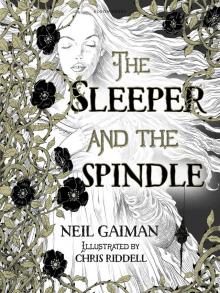 The Sleeper and the Spindle
The Sleeper and the Spindle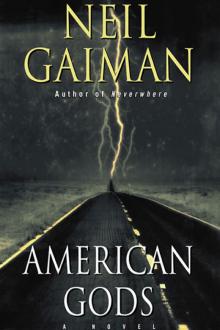 American Gods
American Gods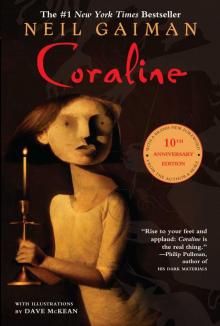 Coraline
Coraline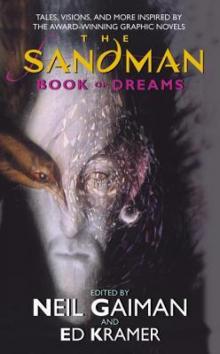 The Sandman: Book of Dreams
The Sandman: Book of Dreams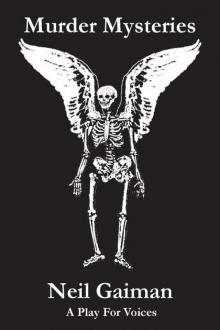 Murder Mysteries
Murder Mysteries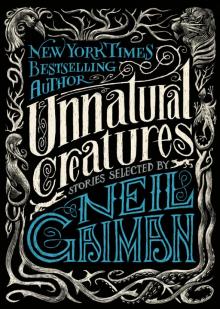 Unnatural Creatures
Unnatural Creatures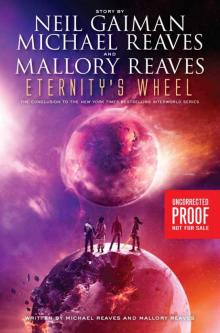 Eternity's Wheel
Eternity's Wheel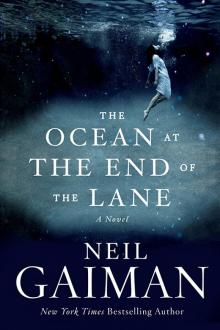 The Ocean at the End of the Lane
The Ocean at the End of the Lane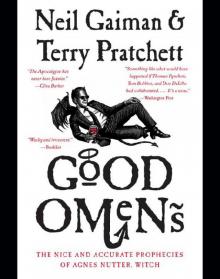 Good Omens
Good Omens Stardust
Stardust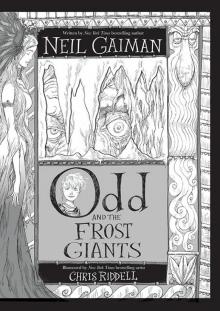 Odd and the Frost Giants
Odd and the Frost Giants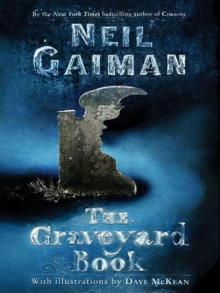 The Graveyard Book
The Graveyard Book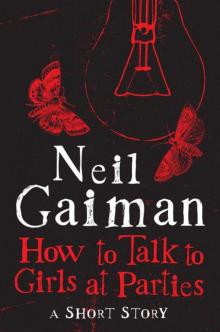 How to Talk to Girls at Parties
How to Talk to Girls at Parties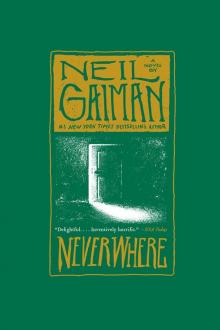 Neverwhere
Neverwhere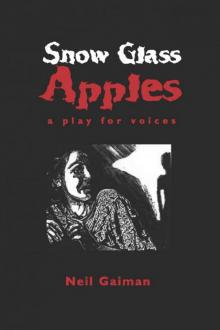 Snow, Glass, Apples
Snow, Glass, Apples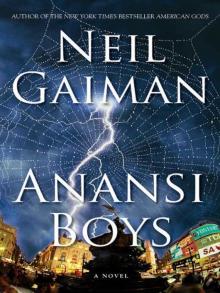 Anansi Boys
Anansi Boys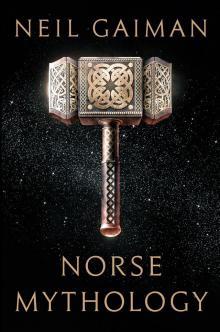 Norse Mythology
Norse Mythology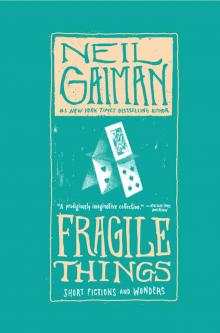 Fragile Things: Short Fictions and Wonders
Fragile Things: Short Fictions and Wonders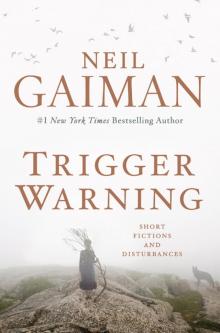 Trigger Warning: Short Fictions and Disturbances
Trigger Warning: Short Fictions and Disturbances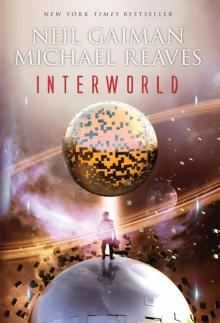 InterWorld
InterWorld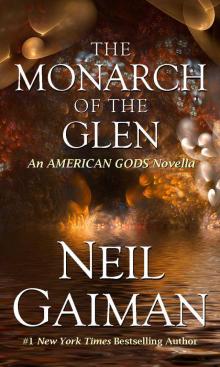 The Monarch of the Glen
The Monarch of the Glen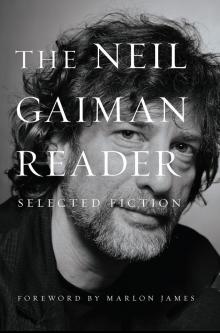 The Neil Gaiman Reader
The Neil Gaiman Reader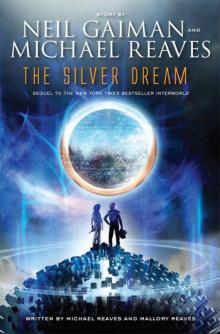 The Silver Dream
The Silver Dream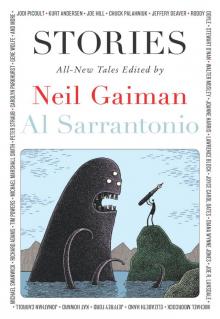 Stories
Stories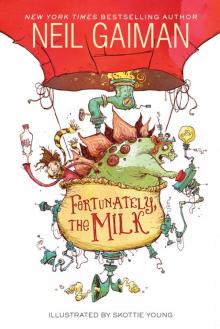 Fortunately, the Milk
Fortunately, the Milk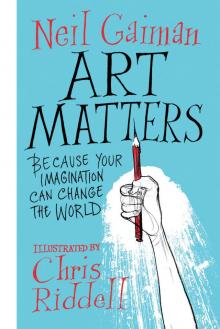 Art Matters
Art Matters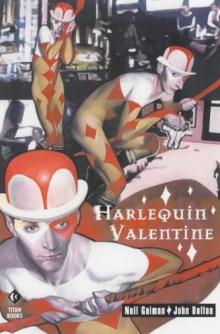 Harlequin Valentine
Harlequin Valentine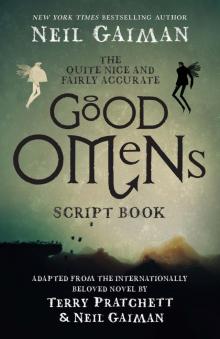 The Quite Nice and Fairly Accurate Good Omens Script Book
The Quite Nice and Fairly Accurate Good Omens Script Book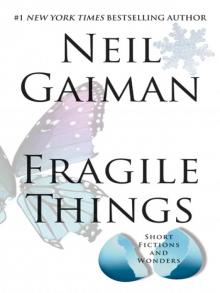 Fragile Things
Fragile Things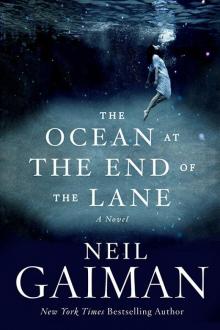 The Ocean at the End of the Lane: A Novel
The Ocean at the End of the Lane: A Novel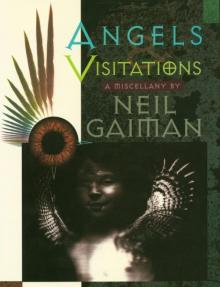 Angels and Visitations
Angels and Visitations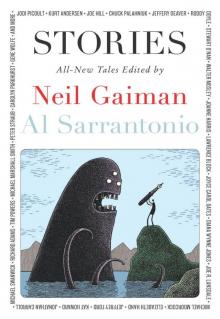 Stories: All-New Tales ngss-1
Stories: All-New Tales ngss-1 Don't Panic
Don't Panic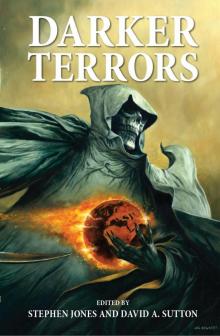 Darker Terrors
Darker Terrors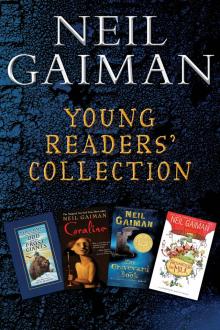 Neil Gaiman Young Readers' Collection
Neil Gaiman Young Readers' Collection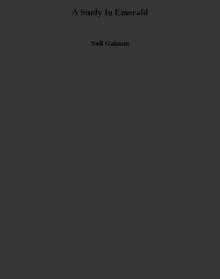 A Study In Emerald
A Study In Emerald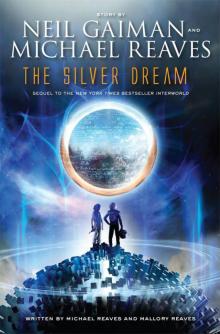 The Silver Dream: An InterWorld Novel
The Silver Dream: An InterWorld Novel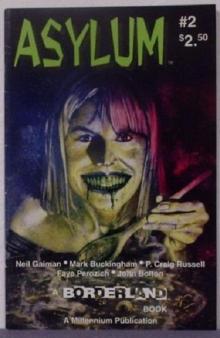 Feeders and Eaters
Feeders and Eaters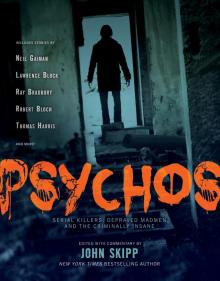 Psychos
Psychos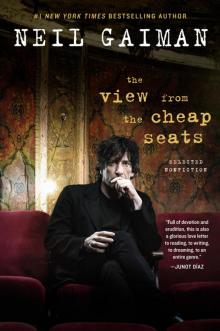 The View from the Cheap Seats
The View from the Cheap Seats Trigger Warning
Trigger Warning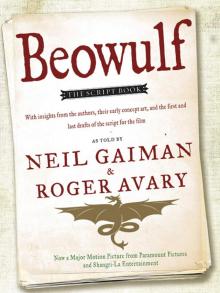 Beowulf
Beowulf Nessun Dove
Nessun Dove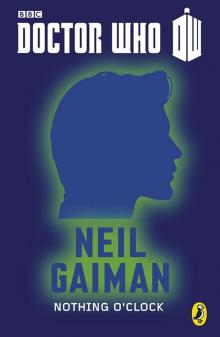 Doctor Who: Nothing O'Clock: Eleventh Doctor: 50th Anniversary
Doctor Who: Nothing O'Clock: Eleventh Doctor: 50th Anniversary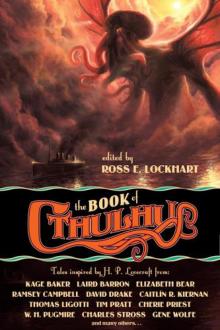 The Book of Cthulhu
The Book of Cthulhu